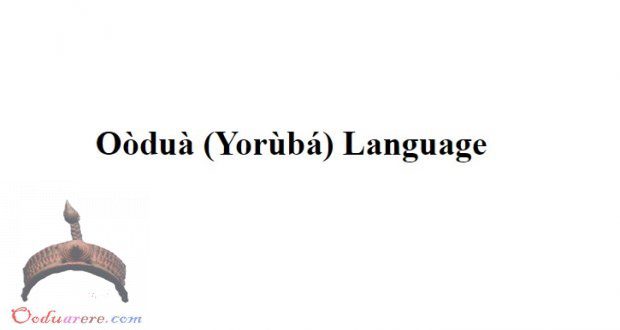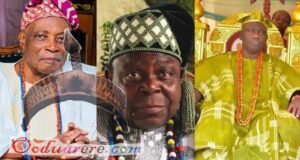In fact, by the time the trade with Europe started, the Yoruba language had become the lingua franca for peoples beyond the Oòduà (Yorùbá) ethnic homeland. Writing about the Aja kingdom of Allada in 1668, Dapper said: “Their own mother tongue is by them little regarded; therefore they seldom speak it; but they are obliged to speak mostly Alkomijs which in their country is regarded as a noble language.”16 One Father Columbin of Nantes visited the coast of West Africa as head of the French mission in 1634 and 1640. In a letter to the higher authorities of the mission, he wrote as follows about the Benin kingdom: In this kingdom, the people may very easily be led to embrace the faith, and priests can live here with greater ease than in other parts of Guinea because of the healthy climate …
Their language is simple; it is called Licomin language and is universally used in these parts, just like Latin in Europe. Europeans along the West African coast called the Oòduà (Yorùbá) Lukumi, Lucumi, or Alkomin (and endless variations of it), and the Yorùbá language Alkomijs, Licomin (and other variations).
Thus, Dapper’s Alkomijs and Father Columbin’s Licomin meant the same — the Oòduà (Yorùbá) language. The use of the Oòduà (Yorùbá) language, therefore, linked together not only all parts of the Oòduà (Yorùbá) homeland but also areas extending beyond. As earlier pointed out, the Aja country, commercially, was essentially part of western Oòduàland (Yorùbáland). Such an expansive cultural and linguistic continuum provided great opportunities for commercial development.
The creation of the Oòduà (Yorùbá) cities and towns, some housing the thrones of kings, all ruled by well-organized governments, was another important factor. It opened up and civilized the Oòduà (Yorùbá) forest and grass homeland and turned it into a land wherein people could roam at will.
 Ọmọ Oòduà Naija Gist | News From Nigeria | Entertainment gist Nigeria|Networking|News.. Visit for Nigeria breaking news , Nigerian Movies , Naija music , Jobs In Nigeria , Naija News , Nollywood, Gist and more
Ọmọ Oòduà Naija Gist | News From Nigeria | Entertainment gist Nigeria|Networking|News.. Visit for Nigeria breaking news , Nigerian Movies , Naija music , Jobs In Nigeria , Naija News , Nollywood, Gist and more









